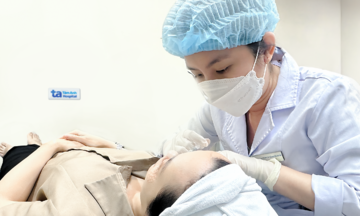Answer:
The thyroid is a small endocrine gland located at the front of the neck. It produces the hormones thyroxine (T4) and triiodothyronine (T3). These hormones regulate metabolic rate, affecting nearly every organ in the body. When the thyroid is overactive, T3 and T4 levels in the blood rise, increasing the body's metabolism and causing hyperthyroidism. Symptoms include increased heart rate, sleep disturbances, anxiety, and hand tremors. These symptoms are quite similar to those of psychological stress, which can lead individuals to underestimate the issue and delay seeking treatment.
However, hyperthyroidism symptoms typically persist and are accompanied by rapid weight loss despite increased appetite, excessive sweating, and a persistently rapid heart rate even at rest. In contrast, stress symptoms are usually temporary and subside with rest, relaxation, or after the stressor is removed. Hyperthyroidism can also cause prolonged diarrhea, hair thinning and loss, dry skin, bulging eyes, or eye irritation—signs not seen in individuals experiencing stress.
In many cases, individuals experience prolonged anxiety, nervousness, and insomnia, attributing these solely to work pressure. Upon examination, doctors discover an enlarged thyroid, a heart rate of 100-120 beats per minute, and elevated thyroid hormone levels.
 |
Doctor Quang Minh examining a patient. Illustration photo: Tam Anh General Hospital |
If you suspect you have hyperthyroidism, you should consult a doctor. Undiagnosed and untreated hyperthyroidism can lead to complications such as heart failure, arrhythmia, and thyroid storm—a dangerous medical emergency. Depending on your condition, your doctor may order a thyroid ultrasound, blood tests for TSH, FT3, FT4, and related antibodies. In some cases, a thyroid scan may be necessary to assess the function of different areas of the gland. These techniques help differentiate hyperthyroidism from anxiety disorders or other conditions, facilitating an appropriate treatment plan.
Treatment for hyperthyroidism may include antithyroid medication, medication to regulate heart rate, radioactive iodine, or surgery to remove the thyroid gland, depending on the cause. Alongside this, patients require a nutritious diet, limiting coffee and alcohol, getting enough sleep, and avoiding stress. Regular check-ups are essential for doctors to adjust medication dosages and prevent recurrence.
Associate Professor, Doctor Ngo Tran Quang Minh
Medical Director and Head of General Internal Medicine Department
Tam Anh General Hospital, District 8












